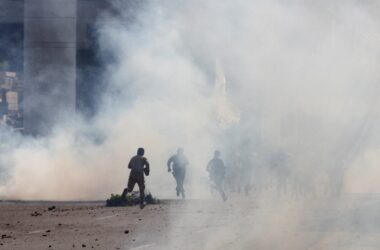In late September, Ukrainian national Wołodymyr Ż.—accused by German authorities of sabotaging the Nord Stream gas pipeline—was detained in Poland following the issuance of a European Arrest Warrant.
European Arrest Warrant and Detention Extension
German authorities issued an EAW for Wołodymyr Ż. after allegations that he participated in the Nord Stream 1 and 2 sabotage. In early October, the Warsaw District Court extended his pre‑trial detention by 40 days, following a prosecutor’s request for 100 days. He has announced an appeal, arguing he should be released on bail while the case unfolds.
Expert Calls for Concrete Evidence from Germany
Professor Piotr Mickiewicz, head of the Strategic and Security Studies Center at the University of Gdańsk, urged the Polish court to require the German side to submit unmistakable evidence establishing the likelihood that Ż. committed a criminal act. He said, “Polish courts must base their decisions on legal grounds and sovereignty, not on political context.”
Decision to Hand the Suspect to German Authorities
Mickiewicz explained that, formally, the requirement to comply with an EAW does not automatically oblige Poland to surrender a suspect. He advocated for careful vetting of German evidence, noting that Ż. claimed to have been in Ukraine at the time of the explosion and possessed documentation confirming his presence.
Assessment of the Bombing’s Origin
According to the expert, the evidence points to a Russian provocation rather than a Ukrainian sabotage. He cited Russian maritime activity around the spill area and suggested that earlier Russian hydrographic vessels were capable of placing charges on the sea floor.
Political and Strategic Consequences of Extradition
Professor Mickiewicz warned that extraditing Ż. could prompt retaliatory measures from other European governments that might request EAWs for Polish nationals. He stressed that the case is unlikely to damage Poland’s image if handled legally, but it could embolden Russian propaganda campaigns.
Expert Criticises Polish Security Forces’ Action
The professor acknowledged that Polish authorities had erred, especially the security services, for not acting sooner to manage the situation. He suggested that the decision inevitably draws attention from Russian media, which could portray Poland as complicit in the sabotage.
Background: 2022 Planning of Operation
Reports from August 2022 indicated that Wołodymyr Ż. had planned to sail from the Port of Rostock into the Baltic Sea, submerge, and install explosive devices on Nord Stream 1 and 2. German prosecutors have issued arrest warrants for six Ukrainian citizens linked to the alleged attacks.










